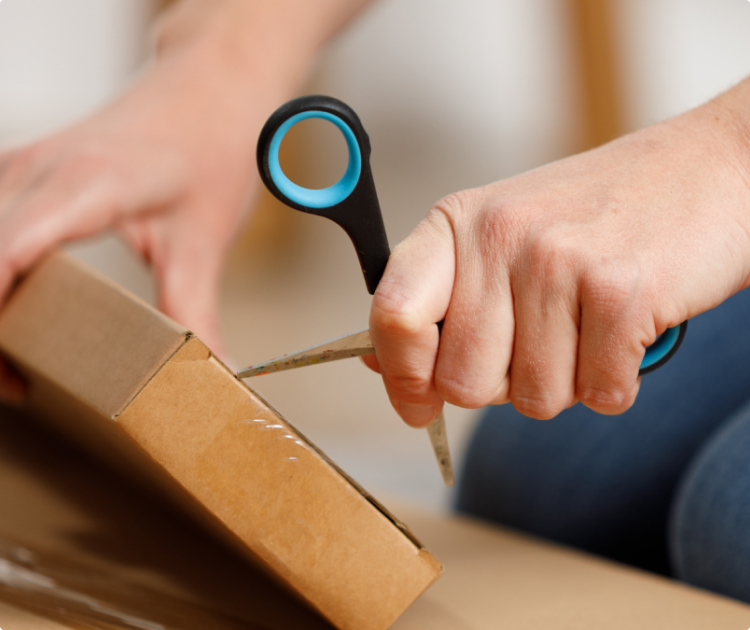Passionate and Results-oriented in product liability cases
Unfortunately, thousands of U.S. residents each year discover that the products they thought were safe and reliable are unsafe and dangerous.
The emergence of product liability as a distinct field of private law can be attributed to the landmark 1963 Greenman decision in the United States, making it the birthplace of modern product liability law during the 20th century.
If a defective product injured you or your family member, you could file a product liability claim against responsible parties in the manufacturing chain, such as the parts manufacturer, assembly manufacturer, wholesaler, or retailer.
With the help of a North Carolina product liability lawyer, you can demand at-fault parties pay for your medical expenses, lost wages or salary, and pain and suffering.
You may have a case if you purchased an item that malfunctioned or had inadequate warnings or instructions.
For a free legal consultation with a product liability lawyer serving North Carolina, call (877) 333-1000
The Uniform Commercial Code (UCC) provides guidelines and standards for commercial transactions, including product sales, and has influenced product liability laws in many states.
It establishes rules related to warranties, sales contracts, and remedies available to buyers in cases of defective products.
A federal product liability law does not exist. Generally, product liability claims rely on state laws and are filed under theories of negligence, strict liability, or breach of warranty. North Carolina State laws are more stringent than most, which is why an experienced North Carolina product liability attorney should assist you with your claim.
You must prove that there was some kind of negligence on the part of the company, the retailer, or the manufacturer.
The complexity of product liability claims can make them quite confusing without a qualified attorney on your side.
Product liability lawsuits can stem from three types of product defects: design defects, manufacturing defects, and marketing defects, commonly referred to as failures to warn. Even without other defects, consumers who sustain injuries due to inadequate warnings or instructions regarding a product’s usage may have a valid product liability claim.
Among these, manufacturing defects typically present the most straightforward grounds for a claim. When assessing whether the product was the direct cause of the plaintiff’s injury, the actions of the product user or a third party can be significant factors to consider.
We will investigate what parties are liable for your defective product injury and then make a product liability claim against them and their insurance company.
Some basic types of product liability include:
-
Negligence
Someone within the manufacturing chain was negligent in a way that made the product defective, resulting in your injury.
-
Breach of warranty
Breach of warranty occurs when a product fails to meet the expectations set by either an express or implied warranty. Whatever the warranty, the product needs to work for that length of time. If the product becomes defective within that time, then that warranty has been breached, and you can hold someone liable for the injuries you received while using the product.
-
Design defects
A poor design may cause a product to be defective before it even hits the manufacturing floor. You must prove that the manufacturing company designed the product unreasonably and that they knew the design could have flaws. If this poor design causes your injury, then the company can be held liable and potentially owe you compensation.
-
Manufacturing defects
A defect can happen during the manufacturing process. This usually doesn’t affect every product unit, but rather just a few of them.
-
Marketing defect
A marketing defect refers to issues in the marketing process, such as defects in manuals or the failure to warn about the dangers and improper product use adequately. Even minor errors like missing lines or typos in manuals can potentially result in the company being held liable.
-
Failure to warn
When a company or manufacturer doesn’t adequately inform consumers of the proper way to use their products, or when they discover a flaw after the product has been on store shelves and fail to warn consumers about it, they may be liable for your injuries.
The instances mentioned are merely a handful of examples illustrating situations where a victim may have grounds to pursue a case under product liability laws.
Once your lawyer is confident that they’ve proved the defect or other liability caused your injury, your lawyer will ask for copies of your medical bills, documentation of your injury, copies of any X-rays, information about your lost wages, future earnings, or potential disability from the injury so that you can seek compensation for all of your damages.
With this evidence, your lawyer will demand that the at-fault parties pay what you deserve: full and fair compensation.
Any type of product can be recalled by the manufacturer, including:
-
Automobiles
-
Construction Equipment
-
Electronics
Reasons you may not be able
to file for Product Liability
If you altered or modified the product in any way
Changing the product may have caused your injury. The only exemption to this would be if you modified the product according to the seller’s or manufacturer’s direct instructions. You can’t hold the company, manufacturer, or seller liable for your modifications to their product.
If you used the product in a way that defied the instructions or manual
An injury caused by using the product outside the instructions would not be grounds for a product liability claim per North Carolina’s Product Liability Act.
If a seller had no way to inspect a sealed container
This is referred to as the Sealed Container exception. If something comes in a sealed container, the seller cannot reasonably inspect it without breaking the seal, and you can’t hold them liable for your injury.

North Carolina Product Liability Lawyer Near Me (877) 333-1000
FAQs: About Product Liability
First, contact DeMayo Law Offices. You’ll need to prove that the company, manufacturer, or seller is liable for what happened to you. There’s no North Carolina tort for strict liability, so negligence is the only doctrine you can use to pursue compensation in the state.
It depends. A company can’t be held liable if you operated the product incorrectly because you failed to read the instructions before using it. Talk to DeMayo Law Offices to find out if this applies to your injury. Unfortunately, under the North Carolina doctrine of contributory negligence, an injured victim can’t recover damages if they’re found even partially at fault for the incident.
In North Carolina, there is a three-year statute of limitations for personal injury claims. If you want to seek compensation for your injury, don’t wait too long. There is a 12-year statute of repose, which begins from the date the product was purchased. Our firm can guide you through these complicated time limits.
Typically, only the original purchaser, their family members, guests, or employees can sue a company or manufacturer for product liability.
In North Carolina especially, the law tends to favor the companies and manufacturers instead of consumers. The law surrounding product liability is delicate and requires someone with extensive knowledge to resolve a product liability case successfully.
A product used for its intended purpose is expected to work without causing any injuries. When the product is defective and causes injury, that can constitute grounds for a product liability claim.
A product liability claim can hold the manufacturer, retailer, distributor, or wholesaler liable for your defective product injuries. During your product liability claim, you can hold the other party responsible for negligence or breach of warranty.
When you use a product for its intended purpose, you don’t expect it to injure you. Many products come with a warranty that has either been expressed verbally to the consumer or has been provided in a written document.
If this warranty is breached – meaning that the product does not perform according to the purpose for which it was sold, there is a design or manufacturing defect, or a failure to adequately warn the user of possible risks – and you are injured, you may be able to file a breach of warranty product liability claim.
In some states, you may also be able to file a breach of warranty product liability claim if the warranty is implied. A breach of implied warranty occurs if a product injures you after using it for its intended purpose, and there are no other warranties for the product. Implied warranties are not applicable in all states; states have different rules and regulations regarding them.
If you would like to file a product liability claim, contact an experienced product liability law firm to determine if you can file a breach of warranty or breach of implied warranty product liability claim.
No. In the past, if you filed a product liability claim, you had to show that you established a relationship between yourself and the manufacturer, retailer, wholesaler, or distributor by purchasing the product.
If a defective product injures you, and you would like to file a product liability claim, you do not have to show that relationship. If a product you borrow from another person injures you, you may still be able to file a product liability claim.
A product liability negligence claim shows that the wholesaler, retailer, distributor, or manufacturer was negligent in providing you with a working product due to:
- Failure to Warn
- Design Defect
- Manufacturing Defect
A product liability negligence claim can be filed if the product that injured you was dangerous but had no warning, had a flaw or defect in the manufacturing process, or had a defect or flaw in the design of the product. Product liability negligence claims can be difficult to prove.
If you suffer an injury due to a dangerous or defective product, contact DeMayo Law Offices, Your North Carolina Law Firm™, right away.
Our North Carolina product liability lawyers understand the complex, applicable laws and will work hard to help you get the maximum compensation possible for your injury.
Even if you’re unsure whether you can claim damages for your injury, give us a call to discuss the details of your injury and determine your eligibility. Call us today at (866) 338-7477 to set up a free, no-obligation consultation.


